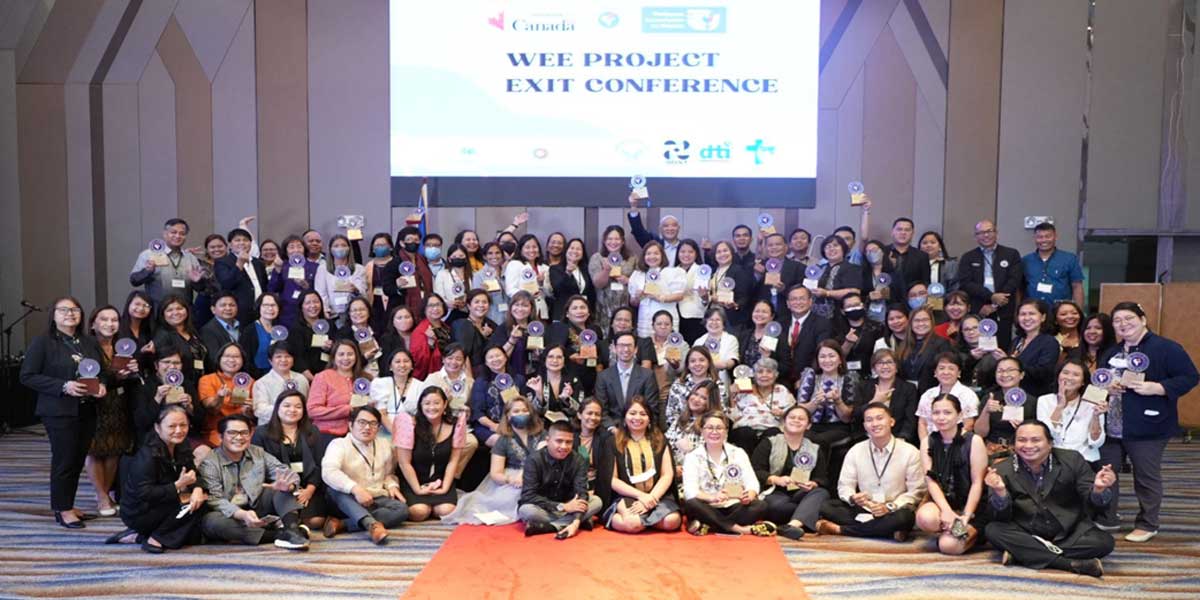
After more than six years of empowering Filipino women to harness and excel in their economic potential, the governments of the Philippines and Canada concluded the Supporting Women’s Economic Empowerment (WEE) in the Philippines Project or GREAT Women Project 2.
The Philippine Commission on Women (PCW), which acted as the project holder, recognized its project partners and selected women micro enterprises (WMEs) during the Project Exit Conference held on May 31, 2022 at the Novotel Manila Araneta City in Quezon City.
Canadian Ambassador to the Philippines, His Excellency James Peter MacArthur graced the event as keynote speaker, with officials and representatives from the Canadian Embassy, the Department of Agriculture (DA), the Department of Trade and Industry (DTI), and the Department of Science and Technology (DOST), DOST- GAD and Regional Support Services (GRSS), DA- Gender Equality and Social Inclusion (GESI), DA – Philippine Center for Postharvest Development and Mechanization, High-Value Crops Development Program and Rural Credit (HVCDP), Philippine Textile Research Institute (PTRI); as well as private sector partners such as the ECHOSi Foundation, SEDP–Multi-Purpose Cooperative (SEDP-MPC), National Confederation of Cooperatives (NATCCO), Bayan Academy, and WMEs.
The WEE Project which started in 2015 encountered setbacks as the COVID-19 pandemic adversely affected economic activities and therefore, project implementation in 2020-2021. This prompted the necessary adjustments in project implementation and timelines, which the Government of Canada agreed to.
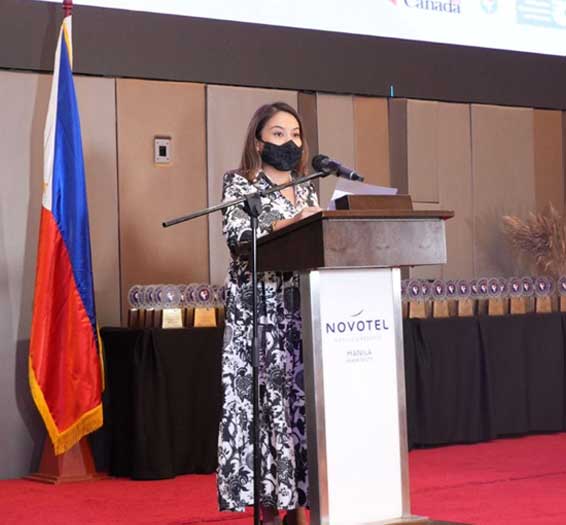
Speaking before the more than 200 audience of the Conference, PCW Executive Director Atty. Kristine Rosary E. Yuzon-Chaves extended her utmost salute to the WMEs and the project partners for their resiliency as they improved their strategies in rejuvenating the badly-hit economy.
She also expressed gratitude to Canada’s support and for allowing the extension of the project for another one-and-a-half year, which allowed the implementers to recalibrate their plans in order to reach as many clients, especially those who were badly hit by the pandemic and other disasters.
“WEE did it and WEE survived! This is the essence of our gathering today because we are here [gathering face to face]. We are here to celebrate, to share stories, to network, and to learn from each other. We look forward to a meaningful exit conference filled with fun and friendship,” Yuzon-Chaves enthused.
Highlights of the event include the handover of the WEE Project Resource Book by PCW Chairperson Sandra Sanchez-Montano and key partners to Ambassador MacArthur. The book documents the
important results and the legacy of the project in promoting women’s economic empowerment in the country.
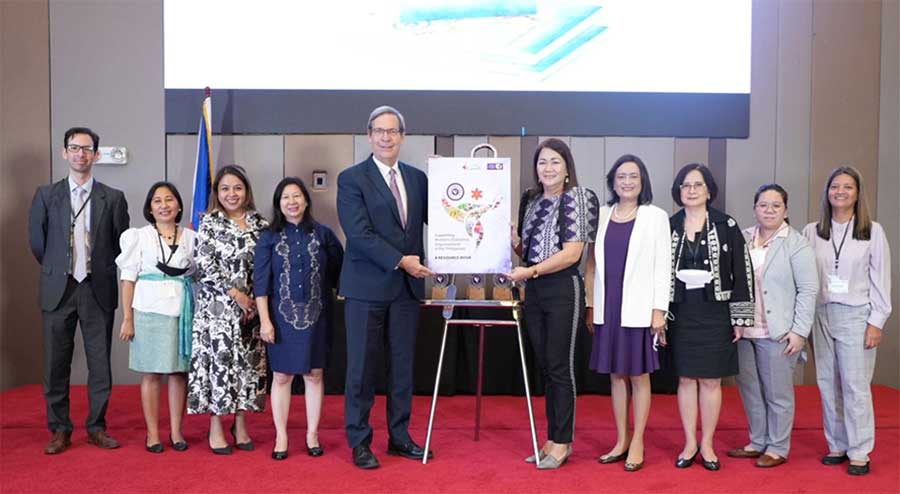
Commission on Women; Undersecretary Evelyn U. Lavina of the Department of Agriculture; Undersecretary Blesilda A. Lantayona, Department of Trade and Industry; Ms. Daisybell M. Cabal, Group Head NATCCO; Ms. Zaida Villanueva from Bayan Academy; and Ms. Noemi Bonaobra, Executive Director, SEPD-MPC
In his keynote address, Ambassador MacArthur thanked the Philippine Government for the long-standing relationship through the PCW and partners for the tremendous success of the GREAT Women Project 2.
“This has been very challenging for many women microentrepreneurs clearly, by some estimates almost 70 % of micro-small-and medium enterprises had been closed in 2020 primarily due to the lockdown. So any amount of economic recovery to pull people back into the workforce is crucial, and projects such as this one are designed to contribute to those efforts. It is only fitting therefore that we pay tribute today to the resilience and successes of women micro-entrepreneurs in these challenging times,” the Ambassador said.
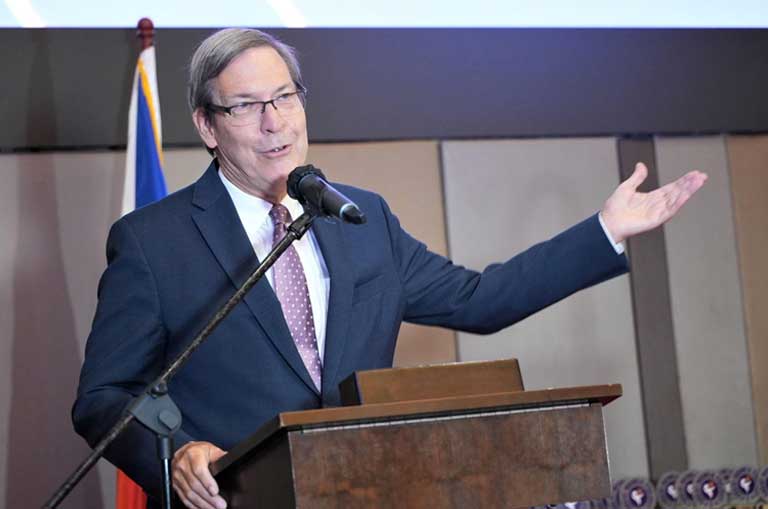
Ambassador MacArthur also noted the importance of e-commerce platform, sharing expertise and close collaboration, and great fellowship among partners and WMEs to create gender-responsive opportunities.
He encouraged the participants to keep moving forward, as he shared the possibility of greater opportunities for women entrepreneurs through the Free Trade Agreement which the Government of Canada is negotiating with the ASEAN where the Philippines is a Member State.
“It is an opportunity for Filipino microentrepreneurs to export more and expand on footwear, food products, handicraft, and artworks,” he said.
Harvesting Results
PCW, with Global Affairs Canada, and the partner agencies worked with 831 women entrepreneurs in growing their businesses during challenging times. The project reported increases in sales, assets, and improvement in environmental management practices of at least 50% of the 831 assisted women micro-enterprises across nine priority regions.
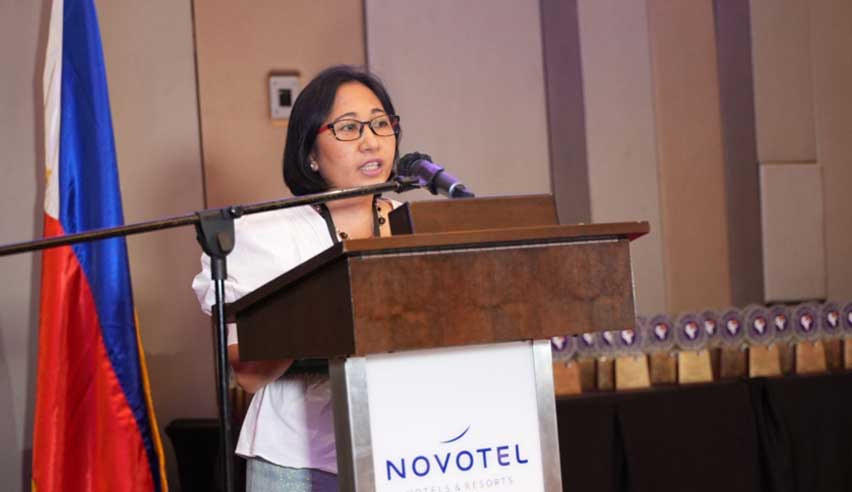
The cumulative outcome of the project shows that of the 831 women entrepreneurs:
- 486 or 58.48% recorded an increased sales of at least 30%;
- 578 or 69.55% recorded an increase on asset size
- 787 or 94.7% recorded a very high level of awareness of environmental management and 486 or
58.48% had improved environmental management practices
- 410 or 49.33% of the businesses have leveled-up
- 329 or 39.58% whose production has at least doubled
- 650 or 78.21% has expanded their market to include institutional buyers
- 185 of 245 (76%) of the total WMEs managed to develop their new products
- 410 of 49.33% have availed of the program
- -31.73 % is the rate of the increase in total employment
- 640 or 86.60% of the business are confident in their business
These outcomes resulted from the various activities conducted by project implementing partners. The assistance extended to the selected beneficiaries include facilitation of their registration and requirements where 377 WMEs were assisted in the acquisition of certification; market development and expansion with 574 WMEs received assistance; product development and upgrading/enhancement of production technologies received by 744 WMEs; and enterprise development and management training and mentoring attended by 739 WMEs.
Other activities to enhance project results were also undertaken such as summits and assemblies; mentoring sessions and training on empowering space sessions, basic finance, access to lending sources, and financial management and environmental management systems.
Based on the enterprise count, the project reached 98.85 % or 821 out of the target 831 enterprises. Of these, nine WMEs were chosen as role models of each region and were awarded a plaque of recognition during the conference. The WMEs were selected based on their performance, abilities in expanding their market and product lines, and the implementation of their learnings from the technical services.
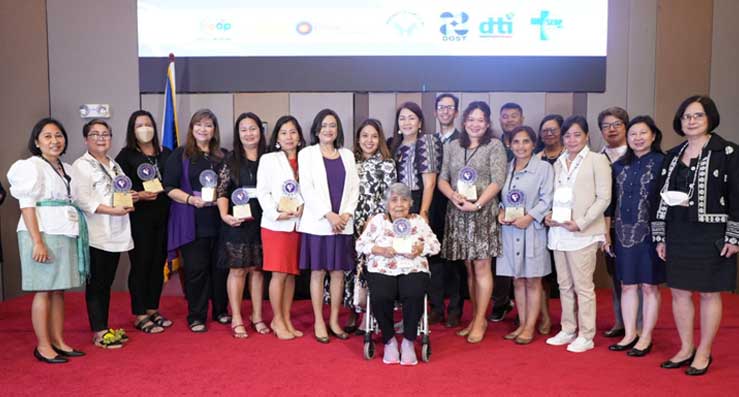
On improving the enabling environment for WEE, the project was able to: 1) gather the support of two high-level WEE Champions from the partner agencies and 18 WEE Advocacy Champions; 2) influence the issuance of 15 policies supporting the project; and 3) assess 28 partners’ programs, activities, projects, and services using the Harmonized Gender and Development Guidelines or HGDG, of which, 11 PAPS or 39.29% were found to be gender-sensitive or gender-responsive programs.
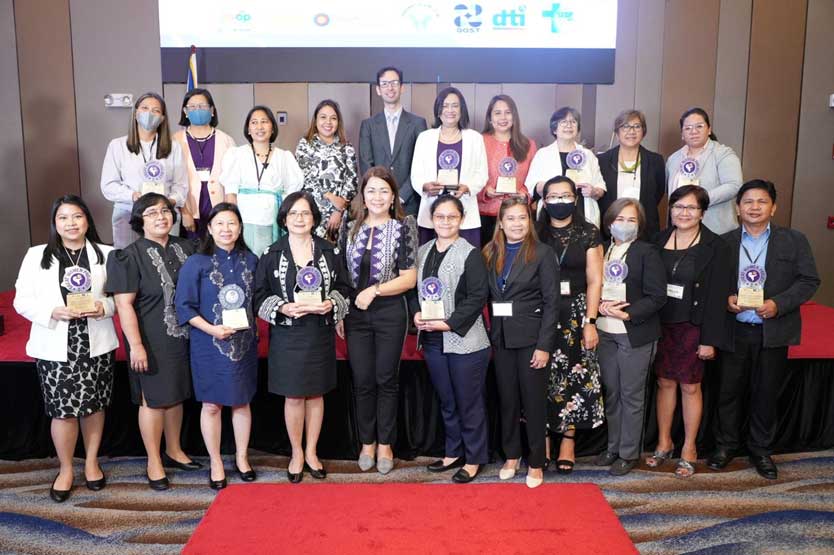
PH Government Commits to Sustain Gains
In separate messages of support during the conference, the DTI, DA, and DOST committed to continue supporting WEE through their gender-responsive programs, in accordance with the Philippine Government’s Gender and Development (GAD) Mainstreaming and GAD Budget Policy.
Post-pandemic recovery and integration of gender-perspective in trade and industry are the focus areas set by the DTI, as conveyed by Trade Undersecretary for Regional Operations Group Blesila A. Lantayona.
“Indeed, we are grateful and honored to be part of the Great Women Project 2 because it provided us with the additional resources to help the sector. Even as the project comes to a conclusion, we in the DTI continue to support women’s economic empowerment to ensure equitable and beneficial access to capital, access to technology, markets, and enhancing their entrepreneurial skills, and leadership capacities” Lantayona said.
She also highlighted their efforts in helping the women micro-entrepreneurs to remain afloat despite the 9.5% drop in the GDP that widely affected the economy in the early months of the COVID-19 pandemic. She further noted that the project helped DTI in making their MSMEs livelihood, international trade, and consumer welfare programs gender-responsive, as part of their Gender and Development Agenda 2021-2023.
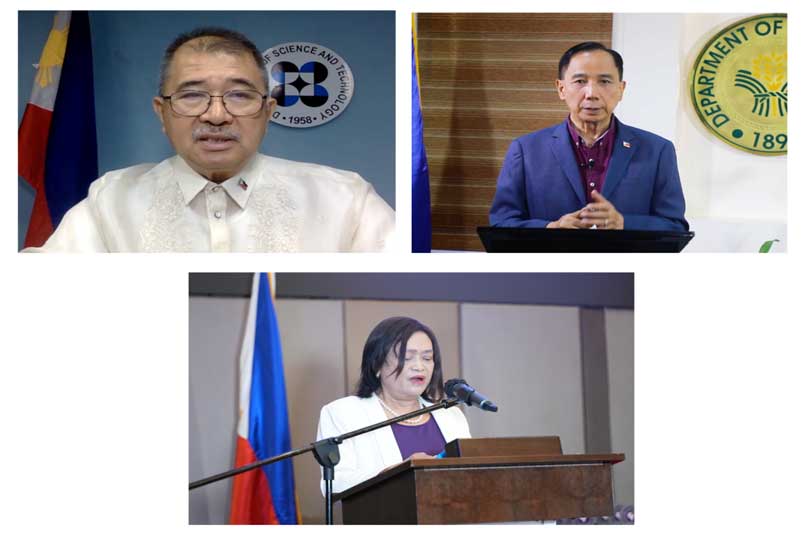
In a video message, Agriculture Secretary William Dar noted that women play active roles as agents in food systems, farmers, producers, processors, traders, wage workers, and entrepreneurs throughout the value chains. He stressed that supporting women would raise the total agricultural output by 2.5 to 4% and potentially reduce the number of hungry people by 12% to 17%.
“When women are economically empowered, they reinvest in their families and communities, creating a multiplier effect that reinforces economic growth, and strengthens the fabric of our nation,” he said.
Meanwhile, DOST Secretary Fortunato Dela Peña highlighted the importance of utilizing science and technology (S&T) in order to provide the appropriate materials for women-owned businesses.
“Improving women’s access to science and technology has the potential to spur their economic advancement and stimulate broader economic growth. The WEE Project has established specific measures to implement policy mandates targeting women and address constraints to grow and scale their businesses,” he said in his video message.
Secretary Dela Peña added that many of their programs in partnership with PCW have undergone gender-mainstreaming evaluation to ensure that the use of S&T in businesses has a gender perspective.
“Enterprise technologies and equipment that are usually designed for men have become women-friendly and are no longer difficult for women to use. Business enterprises are taught to make their technologies and equipment gender-responsive to hasten products, minimize health hazards for women workers, reduce cost and wastage, and improve product quality,” he cited.
On the part of PCW, Deputy Executive Director for Operations Maria Kristine Josefina G. Balmes said that the gains achieved through the project will be continued through the Commission’s Sectoral Coordination Division which will continue to work with partner agencies for their gender mainstreaming efforts.
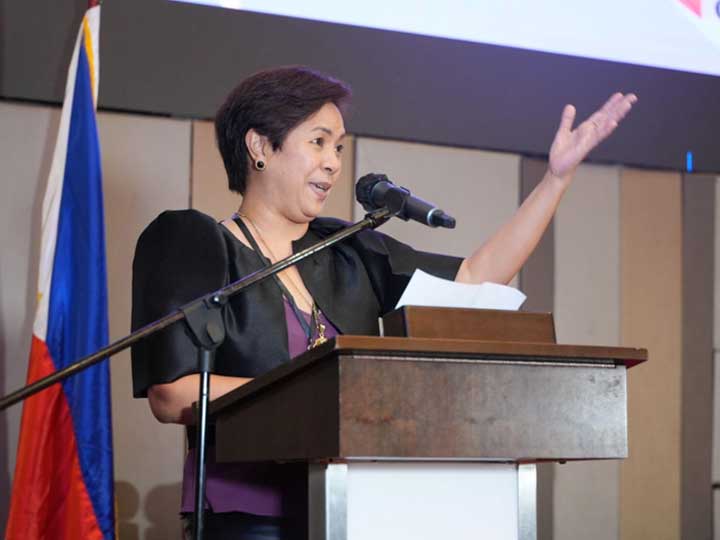
“Despite the pandemic changing our course, specifically our work and financial plans, the willingness and dedication of each and every partner to serve did not cease. Salute to all of you! Although this is an ending [for the project], it is also the beginning of economic recovery, new strategies, opportunities, and many more,” Balmes concluded.
